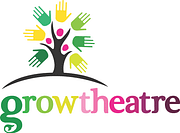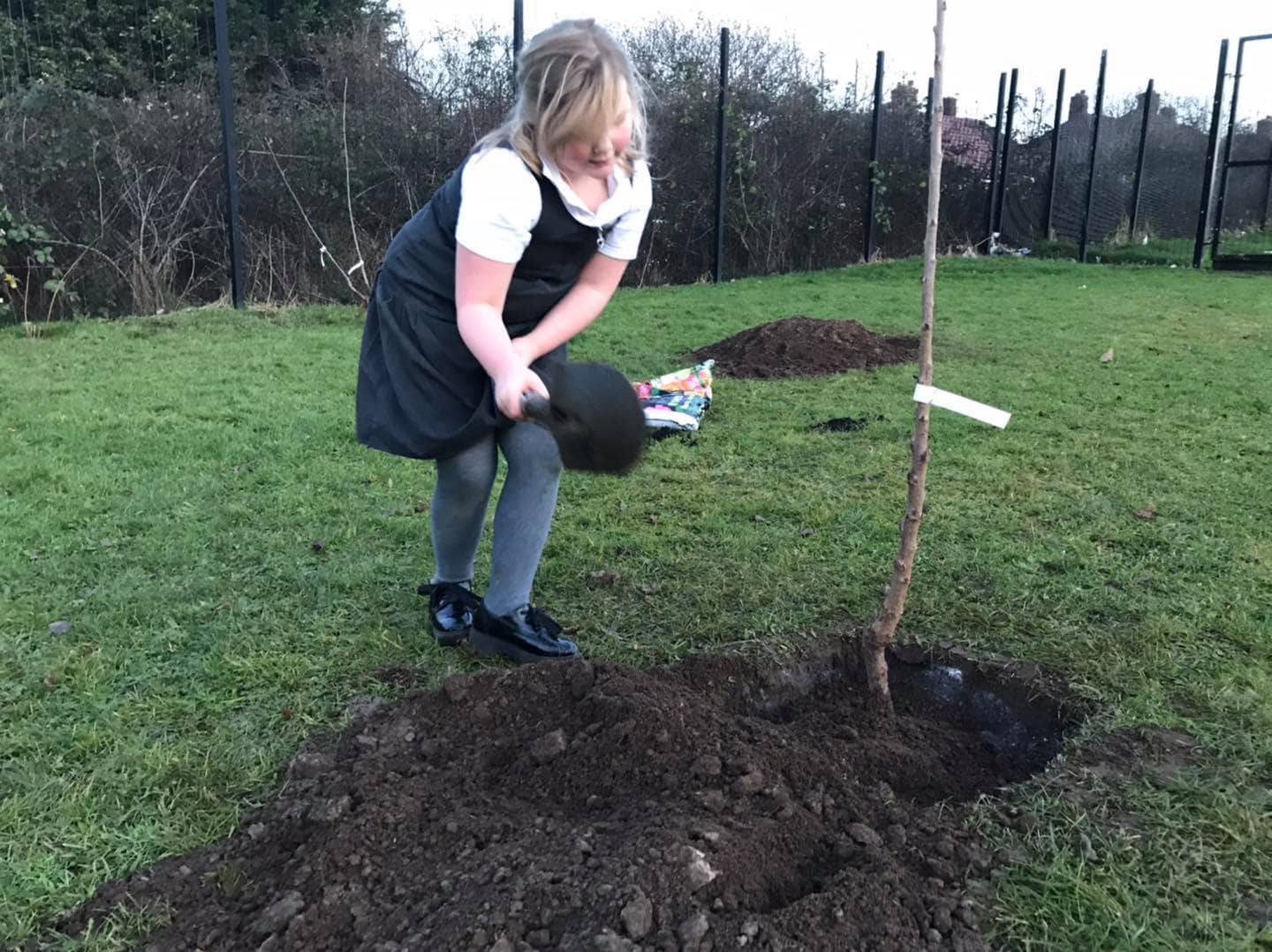
Name of School:
Year Group:
Aim of Work:
Length of Project:
What did we do?
This was a 4-year residency funded by National Lottery Connecting Communities Fund and supported by the Centre for Innovative Volunteering Action. Growtheatre facilitated teaching staff, parents and pupils to seek creative and lasting solutions to difficult problems faced by the Arbourthorne Community.
Through consultation, parents and school staff told us the most significant challenges were connected to food poverty, low literacy levels, social isolation and the digital divide. Over the 4 years, we responded to these challenges in a variety of ways. Sometimes this meant literally using drama for training or storytelling, or making a film; but most of the time it meant applying our creative skills to practical, everyday problems.
Alongside the specific projects, we ran a Volunteer Programme to train, up-skill and empower local people to develop and run all key aspects of the project, for example the Community Fridge. Some volunteers became Team Leaders taking on additional responsibilities and worked closely with school staff to continue the work into the future, thus ensuring long-term sustainability and impact.
Specific examples of projects created:
FOOD POVERTY & GROWING:
- We set up the Community Fridge that distributes surplus food to over 80 families per week;
- provided parents and children with nutrition and creative cookery courses;
- developed a Slow Cooker Library and recipe book;
- planted more than 50 trees, including an orchard;
- worked with the Tree Council on developing a Tree Champion scheme for Y5s;
- developed a new outdoor growing area which includes a poly tunnel, composting system, fire pit, outdoor kitchen and learning space;
- produced food to go into Community Fridge;
- undertook numerous environmental and conservation activities on school site and at the local pond;
- co-created a Sensory Garden with the Inclusion Unit and involved all classes in school in the growing and planting of the garden;
- ran the Red Robin Family Fun Club which promotes outdoor fun, growing food and cooking as a family;
- worked with University of Sheffield researchers to explore how to develop systems to provide sustainable solutions to reduce the impact of the project on the environment.
LOW LITERACY LEVELS:
- We established our Little Library to encourage reading at home (children and adults books available);
- established a Book Group for adults; ran numerous competitions connected to reading and storytelling;
- delivered storytelling workshops for every class focused on the History curriculum;
- ran a programme of Stay and Play sessions for Foundation Stage and Nursery with a literacy and outdoor learning focus.
DIGITAL DIVIDE:
- We developed digital and creative activities for families during lockdown including making 2 story-films a day during the first & second lockdowns;
- ensured all volunteers and participants had digital access.
SOCIAL ISOLATION:
- Many of the activities above also reduced social isolation, and we also specifically set up a Women’s Savers Group;
- started a book club for adults; developed a fortnightly Family Feast for everyone in the local community.
What impact did the project have?
FOOD POVERTY & GROWING:
- Families are now eating more healthily on a budget, growing their own food at home and growing food for the Community Fridge.
- The school grounds look visibly different as a result of our intervention, providing children with increased outdoor learning opportunities and families with the opportunity to learn growing skills and have access to more fresh fruit and vegetables.
- By taking their learning outdoors, all pupils have enriched experiences and a greater understanding of the world.
- Staff have a new environment to bring their curriculum to life in and parents and families have learnt to grow fruit and vegetables.
- The original plans were severely impacted by Covid-19 but this also created new opportunities. The project’s emphasis on food security and nutrition became vital during this time, and the Community Fridge, volunteers and supply chain became a lifeline for many families.
LOW LITERACY LEVELS:
- Our work with Nursery and Foundation Stage has brought parents back into school for the first time after the pandemic, to engage with their children’s learning and to witness why reading and hands on activity with your child is so important.
- Our Stay and Play Programme has impacted on parents’ confidence to be outdoors with their children and to take an active role in their child’s learning, including reading regularly to them.
DIGITAL DIVIDE:
- Every home is now digitally connected and offered support for parents to become familiar with different digital platforms.
- We provided both online learning and creative activities during lockdown, which offered families fun, dynamic, creative and educational learning experiences as well as providing social interaction.
- Much of this work has continued post lockdown following feedback from parents about how important these digital solutions have become.
SOCIAL ISOLATION:
- Social isolation became a pressing concern during the pandemic. We sought to address this through a variety of different activities, both online and, socially-distanced, outdoors.
- One of the impacts of engagement with the project has been that parents reported that they felt more connected, more engaged and experienced improved mental health.
SHARING OUR LEARNING:
- We have worked closely with the Centre for Innovative Volunteering Action and the University of Sheffield as key learning partners throughout all 4 years. As a result, the extensive research connected to the project has been shared internationally.
- We are delighted that we have been asked to share the learning from this extended project as part of several conferences, including the 2022 UCL States of Mind (Institute of Education) Education Futures in Action.
To view the project evaluation please click here.












































